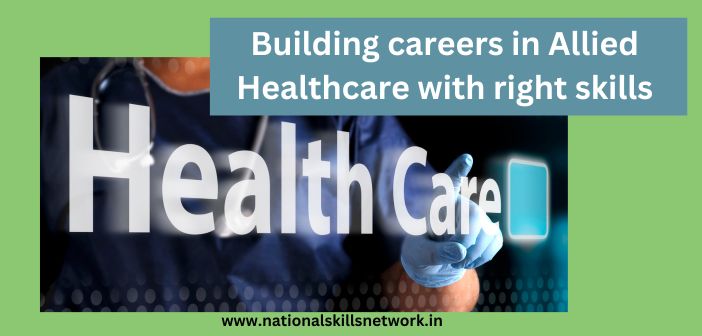“In the evolving landscape of healthcare, including Allied Healthcare, the demand for various roles is burgeoning across the country,” says Dr. Ratna Newar, Director HR, Admin and Quality, Premier Hospital Hyderabad.
To learn more about the increasing demand for various healthcare professionals in the world, in-demand job roles in the healthcare industry, training for allied healthcare professionals, upskilling programs, and more, we spoke with Dr. Ratna Newar, Director HR, Admin and Quality, Premier Hospital Hyderabad.
Below are a few excerpts from our conversation. You can watch the full video on our YouTube channel.
Q. In Allied Healthcare, what’s the job scope and key emerging roles, considering both tech and non-tech aspects, given lifestyle-related issues in our country?
A. Traditionally, healthcare was synonymous with doctors, nurses, and midwives, especially in remote areas where these professions still prevail alongside informal practitioners.
However, alternative medicine, such as homeopathy, Ayurveda, and Unani, is gaining prominence, contributing to the diversified healthcare workforce. McKinsey studies project a significant increase in healthcare jobs globally, with Europe and America expecting around 40 million new positions by 2030, far exceeding the available talent pool.
One of the major challenges faced is the aging population, with one in four individuals in developed countries expected to be over 65 by 2030. Lifestyle-related diseases like diabetes are rampant, leading to complications such as multi-organ failures and increasing demand for specialized care.
Changing lifestyles result in nuclear families and both partners working, creating a demand for services like geriatric care, dementia management, and household assistance. The spectrum of job opportunities spans from entry-level house helps to specialized roles like speech therapists, audiometrists, optometrists, and physiotherapists. Even sports-related healthcare is on the rise, with athletes hiring specialized trainers.
To address this demand, medical colleges are introducing courses tailored to these emerging roles, such as optometry. As the need grows, we anticipate more institutions offering relevant education and training, with the government also expanding medical college capacity to meet the evolving healthcare landscape.
Q. Do we have enough accredited training for critical healthcare roles like nursing and dialysis technicians to meet increasing demand and technological integration?
A. As we witness the emergence of healthcare specialties like dialysis technology among aliens, it’s crucial to ensure comprehensive training for paramedics across various fields. This includes emergency medical technicians, operation theater technicians, dialysis technicians, and those in radiology or radiotherapy.
To address this need, initiatives like the ones I’ve encountered at Premier and elsewhere involve collaborations with educational institutions. Through formal agreements, these institutions send their students for internships, recognizing their own limitations in providing practical exposure. During these internships, which typically span 3 to 6 months, students receive hands-on training under the guidance of experienced professionals.
Some interns, upon completion of their academic exams, opt to extend their internships for further hands-on experience. In some cases, these interns are eventually offered employment, ensuring they gain real-world experience aligned with their theoretical studies. This model, I believe, should be encouraged by private hospitals to ensure a steady supply of skilled professionals.
However, achieving this requires more investment in educational institutions offering these specialized courses. Expanding such institutions is essential to meet the growing demand for skilled healthcare professionals in these evolving fields.

Q. Do trained staff tend to stay and advance within the hospital, or do they often seek opportunities elsewhere?
A. Over the past 15 years, across four different hospitals including Premier, I’ve observed a common trend among nurses. Despite being provided with ample opportunities, many nurses tend to seek new opportunities due to financial constraints. The high fees required for nursing education often leave them unable to register with the Nursing Council of India until they clear their dues, limiting their career options.
To address this issue, Premier Hospital fosters a supportive environment akin to a family. We prioritize employee engagement and skill development, offering specialized training sessions in collaboration with equipment suppliers to enhance their expertise. These initiatives not only empower nurses but also contribute to their job satisfaction and retention.
Furthermore, we recognize the unique challenges faced by our staff, particularly those who have migrated to cities for work. To support them, we provide hostel facilities at nominal rates and ensure they receive nutritious meals daily. These efforts have contributed to an attrition rate of less than 2%, with most departures attributed to nurses securing government positions or pursuing opportunities abroad.
Despite these challenges, our commitment to employee well-being remains unwavering, with many staff members having stayed with us for decades. We continue to prioritize their needs and strive to create a supportive and nurturing work environment.
Q. Does Premier Hospital invest in online learning or modules to keep staff updated with the latest trends and technologies in healthcare?
A. We have partnerships with institutions such as Madeleine, Doctor Wendy’s, and several others for various training programs including CPR. These professional organizations conduct the training and issue certificates, which are crucial for our staff’s professional development.
Also read: Healthcare Industry in India: Scope for skill development and job opportunities
Q. Could you please share a few insights on ensuring safe international opportunities for healthcare professionals and advice for aspiring healthcare workers on career growth, both domestically and abroad?
A. Counseling is crucial for healthcare professionals considering international opportunities, providing insights into work culture and necessary qualifications. For aspiring healthcare workers, specializing in emerging fields like genetic counseling offers new avenues. However, prioritizing knowledge over immediate earnings is essential, with a focus on continual learning and skill development in the early career phase. Healthcare demands patience and empathy, traits that should be carefully considered before pursuing this path. Ideally, career counseling should start early in schools, guiding students to make informed choices aligned with their interests and abilities.
To keep up with the recent updates from NSN, please follow our WhatsApp channel – https://whatsapp.com/channel/0029Va9EpiI9Gv7Q5RTN5I2E












